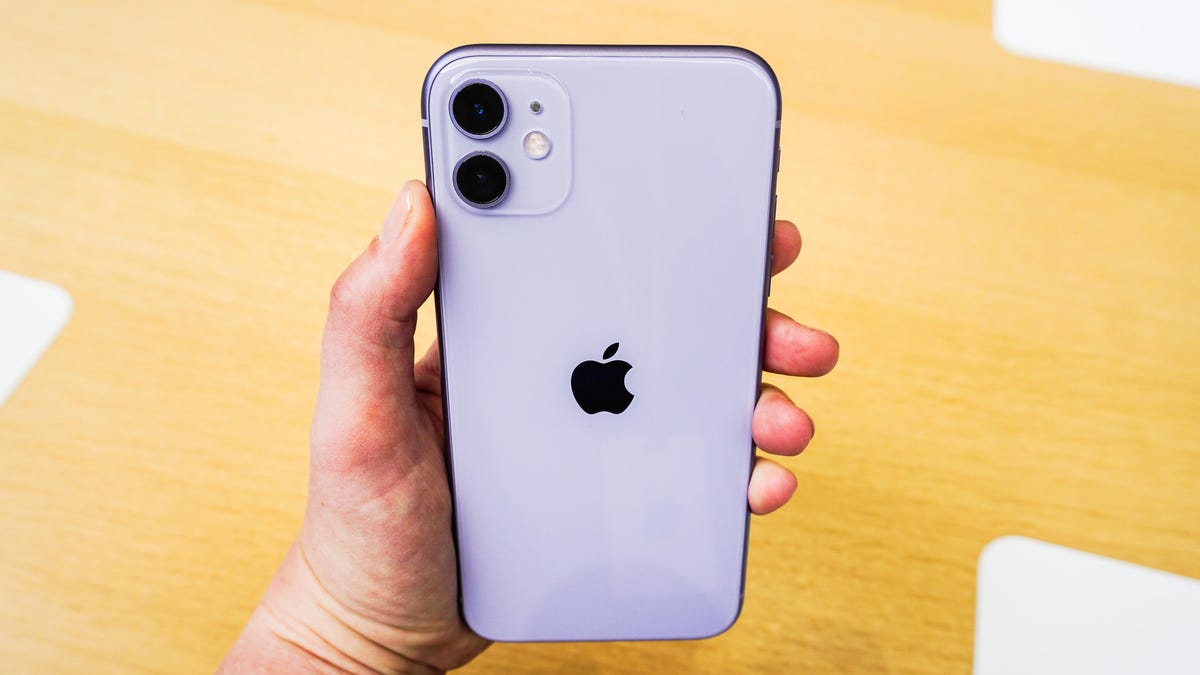iPhone 11's best feature is its $699 price tag
The price tag marks a rare reduction from last year's iPhone XR.

At first glance, the iPhone 11 appears to be the smart choice for a lot of buyers.
At its big launch event Tuesday, Apple spent nearly 30 minutes on the flashy iPhone 11 Pro, lavishing praise upon its three camera lenses and touting its bigger battery. And then there was that new green color. (It wasn't the most mind-blowing reveal.) The company spent just seconds on what was the most impressive change to its lineup: a price cut on the base model, the new iPhone 11, that makes it $50 cheaper than last year's iPhone XR.
The iPhone 11, which packs a dual-lens setup, starts at $699. Tack on $50 for the extra storage and you've got a phone that has twice the cameras and twice the memory for the same price as the iPhone XR.
The iPhone 11 emerges at a time when manufacturers – Apple included – have upped the bar for how much they can charge for a premium smartphone. In a sense, it's a reaction to the tepid market reception for phones going for more than $1,000. With industry smartphone sales in decline and Apple itself feeling the pain, the company needed to get more aggressive.
"With iPhone sales slowing and 5G at least a year away, Apple needs to give consumers a reason to upgrade today," said Avi Greengart, an analyst at Techsponential.
By dropping the price on the iPhone 11, Apple may be doubling down on a winner. The iPhone XR was the best-selling phone in the first half of the year, according to research firm IHS.
So while the iPhone 11 Pro and its larger Pro Max sibling may get a lot of the buzz from tech enthusiasts, everyone else will likely gravitate toward the iPhone 11.
A different pitch
When Apple unveiled the iPhone XR a year ago, the company presented it as the value play, which comes with the baggage of being the budget phone. (Remember the iPhone 5C?)
Yet the iPhone 11, which like the XR sports lower-end specs than the iPhone 11 Pro, debuted Tuesday as the successor to the iPhone XS. Apple's message: This is the iPhone for everyone, while the iPhone 11 Pro and Pro Max are for professionals and more hardcore fans.
More from the Apple event
"These are the most powerful and stunning iPhones we've ever built," Apple CEO Tim Cook said about all of the devices. (To be fair, he says that sort of stuff frequently when it comes to Apple products.)
But the time spent on the iPhone 11 is an acknowledgment that not everyone needs to spend $1,000-plus on a new smartphone.
"Smartphone upgrade trends have slowed as consumers balk at purchasing premium devices that start at more than $1,000," said Lynnette Luna, an analyst at Global Data. "In consumers' minds, these expensive models have lacked the differentiation and innovation to justify the spend."
Between the iPhone XR and iPhone 8, which remains in the market, there are more affordable options for Apple fans who don't have loads of disposable income.
That's important as Apple tries to persuade owners of older iPhones – who probably aren't used to the sticker shock of its higher-end offerings – to upgrade to a new device.
Affordable services, too
There's another reason Apple's so keen to get more people buying its phones: the services. The company wants to build up its base of customers and drive them to offerings like Apple TV Plus and Apple Arcade, which the company said Tuesday would cost $4.99 a month each.
As with the iPhone 11, those prices undercut the competition -- especially considering they can be shared throughout the family on multiple devices. Analysts were expecting prices in the $8 to $10 range.
"Clearly Cupertino is looking for market share coming out of the gates with these surprising price points that we loudly applaud," said Wedbush analyst Daniel Ives.
Apple TV Plus launches on November 1.
"Apple needs phones at all levels of the market to make its services play work," said Maribel Lopez, an analyst at Lopez Research.
It's no coincidence that Apple will give away a year of its Apple TV Plus service if you buy one of its devices.
The shift toward more subscriptions changes Apple's priorities. Rather than drive revenue through uber-expensive premium devices, it's hoping to drive a smaller, but consistent, flow of revenue through its services, which it's described as the fastest-growing part of the company.
The result: more lower-cost options for you when it comes to devices.
But with the hard pitch coming for services like Apple TV Plus and Apple Arcade, you may end up paying Apple one way or another.
CNET's Shara Tibken contributed to this report.
Originally published at 5 a.m. PT.
Update, 8 a.m. PT: Adds an analyst comment.

